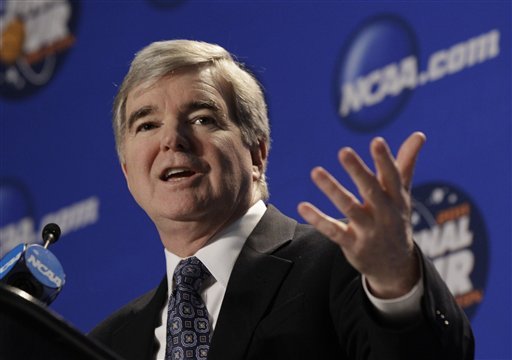FAYETTEVILLE -- Condensing Al Witte's thoughts on college athletics into a roughly 500-word column space is like trying to fit Rosie O'Donnell into Jessica Simpson's bikini.
It just can't be done.
So here are more opinions from the 90-year-old University of Arkansas law professor who spent decades as Arkansas' faculty representative to the NCAA, which included the 1989-91 title of NCAA president.
The title was ceremonial back then, but Witte's caustically cogent comments never stand merely on ceremony.
"Criticizing the concept of amateurism is something I like to do," Witte said. "Because the history of that is it was invented in England during the 19th century by the sons of the gentlemen's class who did not want to compete against the sons of the working classes.
"The working class sons couldn't spend their time playing golf or tennis unless they got some money for it because they needed it to live. The wealthier classes' sons didn't need that, so they had amateur sports where you didn't get paid. That's where the concept of amateurism started."
What about the ancient Greeks and their Olympics?
"Back when the Greeks had their first Olympics 2,000 years ago, the winner of the 100 dash or mile run was subsidized by the government the rest of his life," Witte said. "The prize of winning a gold medal hardly makes you an amateur."
Witte asserts college athletes deserve more than they receive.
"I would think schools [like Arkansas] raise 90 percent of their budget from football and men's basketball," Witte said. "Their [football and men's basketball players'] efforts pay the salaries of all the people that work in the athletic department and all the facilities and for all the other athletes [women and men in non-revenue sports]."
Witte approves of commissioners from the five power conferences -- the SEC, Big Ten, Pac 12, ACC and Big 12 -- proposing to establish themselves with autonomy above the voting bloc of smaller schools without similar financial means to provide athletes benefits like long-term health care from lingering injuries.
"A Division 4-A to develop their own rules regardless what any other subdivision prefers, I think that's a good idea," Witte said. "Because the small portion of these budgets that are $100 million or more that go to these athletes is troublesome."
Witte said the NCAA trend has been to "take away" from the college athlete.
"Remember, they used to give four-year scholarships," Witte said. "What do they give now? One year. They used to give a stipend called laundry money. That disappeared."
Schools from conferences that can afford it should have authority to give back not only to revenue-producing athletes but all their scholarship athletes, Witte said.
"They [women and men in nonrevenue sports] sweat, too, and are just as dedicated to their sport," Witte said. "Can you discriminate on the basis that you make a profit from your sport?
"My guess is that might not fly."
Sports on 07/21/2014

